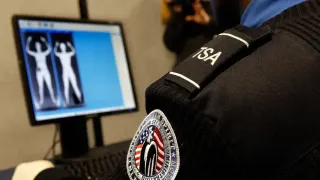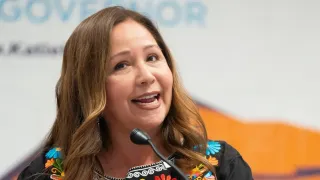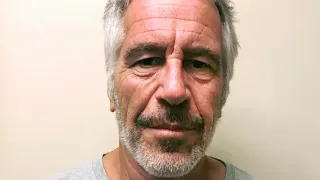
2 hours ago
Faith, Fury, and the Fight for Care: US Bishops’ Gender-Affirming Ban Sparks Outrage Across Queer America
READ TIME: 3 MIN.
The US Conference of Catholic Bishops (USCCB) has ignited a fierce debate that’s reverberating from hospital corridors to community centers: Catholic hospitals, which make up a significant slice of the American healthcare pie, are now officially barred from providing gender-affirming care of any kind—including hormone therapy and surgeries for transgender people—according to a sweeping new directive issued this week .
For queer and trans communities, this isn’t just another headline in the endless news cycle. It’s a body blow—a policy with direct consequences for access, safety, and dignity. “It’s more than a policy. It’s about whether we deserve to exist as our true selves,” said a spokesperson from the National Center for Transgender Equality, capturing the emotional stakes .
Catholic healthcare accounts for roughly one in seven hospital beds in the United States—a reach that’s hard to overstate . For many rural and underserved areas, a Catholic hospital might be the only option for miles. The new ban doesn’t just target specialized surgery centers in big cities—it impacts everyday people, sometimes in life-saving situations.
This isn’t just a theoretical debate about doctrine, say critics. “Trans and nonbinary people already face huge barriers to healthcare. This ban will push folks further into the margins, or force them to delay or forego essential medical care,” said Lambda Legal in a statement .
It’s a reality that’s familiar to many in the queer community: navigating a minefield of insurance denials, administrative red tape, and, now, religious litmus tests. “We are seeing the weaponization of faith against the most vulnerable,” noted Dr. Sarah McBride, State Senator and trans rights advocate .
But here’s what’s different about this moment: faith leaders from other denominations aren’t having it. In a show of solidarity that rarely makes headlines, Jewish, Protestant, and interfaith coalitions are condemning the bishops’ decision as antithetical to the core values of compassion and justice that should define spiritual care .
Rabbi Danya Ruttenberg, a prominent voice for queer inclusion in faith, called the ban “a failure of moral leadership,” emphasizing that “religion should be a source of healing, not harm” . The United Church of Christ, long known for its LGBTQ+ advocacy, issued a statement reminding the public that “transgender people are God’s beloved, and deserve medically-affirmed, evidence-based care” .
This interfaith resistance isn’t just symbolic. Allies are mobilizing to provide resources, raise awareness, and, in some cases, help queer and trans patients find safe, affirming care outside the Catholic hospital system .
For LGBTQ+ people, especially those living in conservative regions or under layers of intersecting marginalization, the bishops’ move lands as both deeply personal and frustratingly familiar. It’s another chapter in a long history of institutional gatekeeping—one that’s been met, time and again, with queer resilience, organizing, and creativity.
Grassroots groups are already circulating guides for finding affirming providers, and legal teams are exploring challenges based on discrimination and denial of care . There’s also a broader reckoning underway: what does it mean to live in a country where access to healthcare is still shaped by religious doctrine, and where the personal is always, inescapably, political?
One silver lining: the ban has lit a fire under networks of queer solidarity that have always sustained the movement. “We look out for each other because we have to. It’s what keeps us alive and thriving,” said a volunteer with the LGBTQ+ outreach collective QueerCare .
In the face of this ban, the queer and trans community is refusing to back down or disappear. While the bishops’ decision may have drawn a line in the sand, LGBTQ+ advocates and allies are meeting it with clarity, courage, and the kind of chosen family spirit that has always been the heartbeat of queer survival. As this story continues to unfold, one thing is clear: the fight for affirming healthcare is far from over, and the world is watching.






